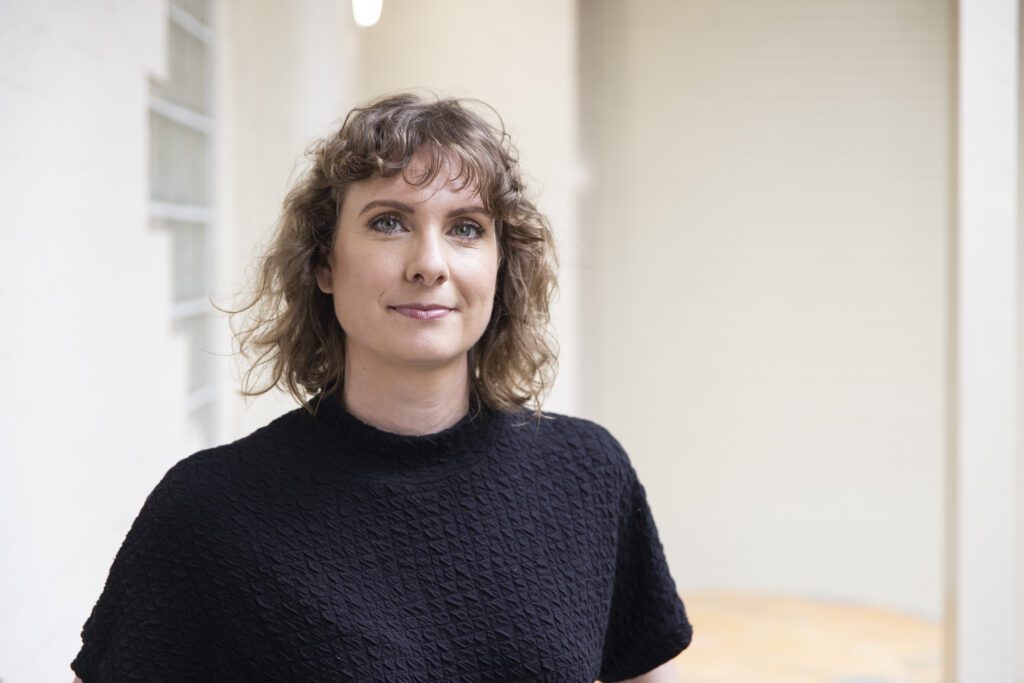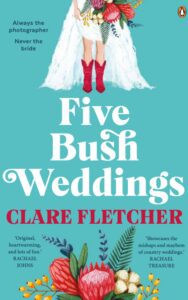5 gifts to give your WIP this festive season

Slow down, chill out and experiment with your writing practice.
Happy Holidays! It’s that magical time of year where we get to sit down, relax, stuff ourselves with treats and – if you’re a fiction writer – spend some quality time with your manuscript.
While showing up and writing is always a good idea, you might be in the mood to experiment. If you want to tap into that spirit of creativity that seems to hover nearby when you feel relaxed and happy, here are five ways to play with your words these holidays.
1 Interview your characters
I love this writing practice for its ability to bring out greater depth in your cast of characters – and as a result, strengthen your novel.
It’s particularly useful if any of your characters are feeling one-dimensional on the page.
They may play an important role in the story arc, throwing up obstacles for your main character or helping them unravel a mystery, but who they are and why they act the way they do isn’t clear.
Or perhaps it’s your main character. You know they have a strong surface desire – they might want to fall in love or be married by 30 – but you haven’t fully explored the deeper desire underpinning that goal. The result is that readers might not connect with your character enough to go on that journey with them.
Interviewing your characters allows you to access hidden feelings, strengths, flaws, traits and more.
How to do it? Find a space where you can work uninterrupted for a while – around an hour. Then, start by throwing some basic questions at your character to get them talking. Where are they from? Where did they grow up? How many siblings? What colour is their eyes? How do they dress?
Then start throwing in some curlier questions. They might be directly related to your plot or characters (eg why do you dislike so-and-so, why did you make that decision?), or they might be more personal: What’s your earliest memory? What’s your greatest fear? What past hurt can you not forgive?
You might be surprised what comes out and how it can take your novel to another level.
2 Read a (craft) book
Sometimes, you just need a break from writing.
If you’re lacking inspiration or wondering how to unravel a sticky spot or want to level up your writing skills, why not devote this holiday period to some writing theory instead of practice.
There are loads of great books on the craft of writing to explore. Some of my favourites are:
Big Magic by Elizabeth Gilbert
Perfect if you need a gigantic shot of inspiration. Gilbert makes any creative task feel achievable in this guide.
Eats, Shoots & Leaves by Lynne Truss
Truss’s guide to punctuation is funny, interesting and informative. The trifecta!
The Emotion Thesaurus by Angela Ackerman and Becca Puglisi
Use this fantastic handbook to liven up your characters’ emotional responses in dialogue and action beats. Perfect if you find a character routinely groaning, blushing or biting their lip.
Searching for the Secret River by Kate Grenville
Grenville generously shares the story behind her beautiful novel The Secret River, from the family history that inspired the tale to the twists and turns it took in editing.
3 Go on a creativity date
This tip is based on the artist date exercise in Julia Cameron’s The Artist’s Way, which is a 12-week program designed to get creative juices flowing.
I love the idea of taking yourself on a date to inspire creativity, and the holiday period is the perfect time to do it. You could visit an art gallery, have lunch solo, go to the cinema or walk in nature – it’s about finding an experience that will spark your curiosity.
To make it even more closely related to your WIP, imagine the experience through one of your character’s eyes. What would they order at the café? What kind of movie would they choose? What would be their favourite artwork at the gallery and why? How would they feel walking in the bush on their own?
The idea is to be playful to unlock your creativity and bring unexpected ideas to the surface.
4 Try a different point of view
Do you always write in the same close third-person point of view? Maybe you love the intimacy of first-person stories.
There’s no right or wrong, but if you’re feeling stuck with your story you might want to flip the POV to see if that helps to address a stagnant pace or brighten up a sluggish mid-section.
You don’t have to commit right now – this is about experimenting. Try rewriting a scene or a chapter in a different POV, whether it’s going from third to first person or swapping from one character’s perspective to another’s.
It’ll feel unfamiliar at first, maybe even a bit ick. Push through and notice what comes out in your story as a result – perhaps more insight into a character, perhaps a lighter, brighter voice. It could unlock a whole new perspective on your novel and your writing style.
5 Create a style sheet
Think of this as life admin for your WIP.
A style sheet is a document that keeps track of the world inside your novel, from the nuts and bolts of specific spelling decisions to the traits of characters who inhabit your story.
It’s a great consistency tool, because it allows you to quickly check those finicky details, like if you use OK rather than okay, if your character’s eyes are blue or green, and if you use italics or quote marks for thoughts.
You can create your own style sheet easily in Word, listing your world-building decisions under categories such as ‘settings’ and ‘characters’ and spelling and punctuation choices under alphabetical subheadings (for example, an entry such as quotation marks: single, double within would fall under Q).
This is especially important if you’re working on a series, as it helps you maintain consistency across books, and it’s great for speculative fiction, which often has a long list of world-building rules to keep up with.
If you team up with an editor on a copy and line edit, they will create a style sheet for your work (I provide authors with a comprehensive style sheet when I return their copyedited manuscripts). And if you’ve already created your own, you can pass it on to the editor or proofreader for their reference as they work on your novel – they’ll love you for it!
I hope these ideas help you get your creativity firing these holidays! Let me know in the comments which of these writing practice gifts have been most useful for your WIP.





